#EV
Bob Lutz Pens Chevrolet Volt Defence In Forbes
Bob Lutz took Fox News and other media outlets to task in his latest blog for Forbes, titled “Chevy Volt and the Wrong-Headed Right”, with Lutz taking shots at Bill O’Reilly and Rush Limbaugh.
California Volt Drivers Get Carpool Lane Access
Starting in March, the Chevrolet Volt will be eligible to use the HOV lane on California highways. The catch? You have to buy a new Volt to use the carpool lane.
Canadian Condo Won't Let Chevrolet Volt Owner Charge His Car
A Chevrolet Volt owner in Ottawa, Ontario has been blocked by his condominium board from charging his Chevrolet Volt – even though he has offered to reimburse the board for the $1 (approximately) in electricity it takes to charge the Volt at local rates.
New Trends In EV Marketing: BMW Recruits "Adventurers And Explorers" As Core EV Customers; Will Convert Them Into Green Lab Rats
Do you live in the Boston, Hartford, New York, Los Angeles, Sacramento, San Diego, or San Francisco MSA (Metropolitan Statistical Area)? Do you see yourself as an adventurer and explorer? In that case, BMW wants to talk to you. BMW has pegged adventurers and explorers as “front-runners of innovation and advocates for sustainability.” These are the people BMW wants to “recruit” for a “field trial” of its Active E electric vehicles.
It will be a transformative experience. You will be turned into a green lab rat.
Chinese Government Announces EV Policy: Made In China Means Money
The Chinese government finally announced its long-awaited and much discussed subsidy program for the fledgling electric car industry. China will waive sales taxes on electric and fuel cell cars. There is only one limitation, which likely will make some Michigan Senators scream bloody murder: The cars must be made domestically in China.
Congressman & Chevy Dealer Introduces Bill To End EV Tax Credit
A few days ago, the Washington Post demanded the execution of the $7,500 tax credit for EVs. Republican Congressman Mike Kelly is ready to comply. He introduced H.R. 3768, legislation that would repeal the $7,500 tax credit for plug-in electric drive vehicles. The odd thing is: Kelly is owner of Kelly Chevrolet-Cadillac in Butler, PA. The not so odd thing is: He knows firsthand whether the car is worth tax payer money or not. Kelly does not think so:
WaPo: Kill The EV Tax Credit!
An op-ed piece in The Washington Post praises the wisdom of Congress that refused to renew the 45-cent-per-gallon tax credit for corn-based ethanol and the 54-cent-per-gallon tariff on imported ethanol, thereby exposing alcohol to the rough treatment of the market. Also not extended was the tax credit for installing a charger at home or in a commercial location.
The WaPo thinks killing the $6 billion incentive to turn corn into fuel, and letting EV owners buy their own charger was righteous, but only a half-measure. Congress should have finished the job and should have finished handing out $7,500 tax credits to buyers of EVs. The WaPo thinks it’s a waste, and the technology is going nowhere.
Another Plugin Problem: A123 Warns Of "Potential Safety Issue" With Fisker Karma Battery
In the ramp-up to the launch of the Chevy Volt and Nissan Leaf, a great debate seized the engineering community: was Nissan opening itself to problems by not including a active thermal management system for the Leaf’s battery pack, or was Chevrolet’s liquid-cooled approach simply adding unnecessary complexity? Well, thus far, the verdict seems to be in Nissan’s favor. Though Leaf has been troubled by some dissatisfaction with its real-world range, the Volt has endurd the first technical semi-scandal of the plug-in era, when federal regulators found that ruptured coolant lines could cause fires. Now the liquid-cooled approach is hitting its second challenge, as Fisker’s battery supplier A123 Systems is warning in a letter [ PDF] that
some of the battery packs we produce for Fisker Automotive could have a potential safety issue relating to the battery cooling system.
Ruh-roh!
Tesla Model S Pricing Analysis
Tesla released the finalized features and pricing for the Model S sedan this week, with deliveries of the most expensive variants to begin in “mid-2012,” the others to follow by the end of next year. More than a few people who thought they were going to be able to buy a “premium electric sedan” for $50,000 seem miffed by the final pricing. Yes, there will eventually be a $50,000 car (after a $7,500 tax credit). But it won’t have full motor power, leather, nav, or the ability to use fast-charging stations. Tick off all the boxes, and the Model S pushes double the hyped number. But, let’s face it, these guys have to turn a profit and must pay at least as much for parts as the big established car companies, on top of that big expensive battery pack. So does the announced pricing seem reasonable?
Better Place Places One Foot Into China
China has big plans for the electrification of its cars. After spending a whole day at Beijing’s airport a week ago, waiting for the smog (not the “fog” as it was officially called) to clear, all I can say: “Get on with it.” (Unless the electrification results in more smoke-belching coal-fired powerplants.) Better Place, the company that wants to swap the battery in your EV in the same time it would take to pour gas in your car, always wanted to have a piece of the Chinese action. Now, at least there is a first step into China. Today, China’s Southern Power Grid (CSG) and Better Place opened their “Switchable Electric Car Experience Center” in China’s southern city of Guangzhou.
GM Considers Volt Battery Redesign, Halts European Deliveries, Will Miss US Sales Goal, Recall Or Buyback Possible
In the comments section of yesterday’s post on the ongoing Chevy Volt fire investigation, I noted that GM might
retrofit Volts with crash protection that can maintain battery integrity in all crash conditions… Mary Barra has said that GM is
“continuing to work with NHTSA to investigate additional actions to reduce or eliminate the potential of a post-crash electrical fire.”
I think some kind of update on the battery integrity front is inevitable, but we shall see…
Sure enough, today Reuters is running an interview with GM CEO Dan Akerson, who says that European deliveries of Opel-branded Volts (called Ampera) would be delayed pending NHTSA’s investigation, and that maybe, just possibly, the Volt’s battery might have to be redesigned. Says Akerson:
We want to assure the safety of our customers, of our buyers, and so we’re just going to take a time out, if you will, in terms of redesigning the battery possibly
Unfortunately, Akerson’s mangled syntax makes it tough to know if GM is really going to redesign the Volt’s battery, or what the “time out” in question means. He does tell the AP [via The WSJ [sub]] that a recall or buyback are options as well. Though redesigning the Volt’s battery could be expensive and devastating for sales, GM’s current post-crash safety protocol is incredibly human resources-intensive, and likely very costly as well. And the fact that GM is even considering redesigning the Volt for safety a year after its release is going to create a huge sales and marketing challenge anyway. Volt production edged down by 199 units in November, and now GM’s sales boss Don Johnson tells the Detroit News that the Volt will miss its 10,000 unit 2011 sales goal. At this point, GM may just want to take a mulligan on the Volt’s first year, redesign the battery, and relaunch the thing.
This Is The Chevy Volt's Post-Crash Safety Protocol
TTAC has received the following protocol, developed by GM in the wake of the June Volt fire at a NHTSA facility in Wisconsin, from a GM source and has confirmed its legitimacy with a second GM source. Though the procedure may be refined based on the findings of NHTSA’s latest round of tests, it gives a good picture of what GM currently does to ensure the safety of Volt driver and passengers as well as rescue workers, towing company workers and salvage yards. And, I have to say, it puts some of my fears about this safety scare to rest. It hadn’t occurred to me that GM’s Onstar system could provide opportunities to respond to crashes in real-time, and apparently the system provides a wide variety of data with which GM’s “corporate SWAT team” can tailor its response to any Volt crash event. Hit the jump for the full procedure.
Wild-Ass Rumor Of The Day: "CadiVolt" ELR To Be Rear-Wheel Drive?
TTAC has long held that GM should have initially sold the Volt as a Cadillac, putting its newest, most high-tech drivetrain in a luxury car that could support its high list price. Of course the bailout made a CadiVolt a touch too elitist, which led to GM canceling production plans for its Converj Concept coupe. But with plans back on to sell a Converj-inspired ELR coupe, a new question arises: can Cadillac really charge significantly more than the Volt’s $40k-ish MSRP without doing more than simply rebodying the Volt in Cadillac’s Art & Science styling? Automotive News [sub]’s Rick Kranz reckons Cadillac could do more, and thinks that the ELR could end up with rear-wheel drive.
Volt And Consequences: GM Responds To NHTSA Volt Investigation
With NHTSA opening a formal defect investigation into the Chevy Volt, GM is moving to defend its rolling lightning rod (no pun intended) and allay consumer fears about its safety. Yesterday I briefly appeared on Fox Business’s Your World With Neil Cavuto show to talk about what the intro to my segment referred to as “the hybrid from hell” and the “killer in your garage.” I tried to explain that the danger to consumers was basically nil, and that the real concern is for rescue, towing and salvage workers. And I would have explained why NHTSA’s tests still leave some serious questions open, but my “fair and balanced” approach meant that my segment ended up being extremely short. So let’s take the opportunity now to look past the hysteria and pinpoint the real issues with NHTSA’s investigation into the Volt.
NHTSA Triggers "Thermal Events" In Volt Batteries, Opens Formal Investigation
NHTSA has has opened a formal defect investigation into the Chevrolet Volt, on the grounds that
Intrusion in a crash may damage the battery, which may result in a substantial thermal reaction and fire
We knew that NHTSA was already looking in to this type of defect after an earlier test incident, but the official investigation resume [ PDF] lists three separate thermal events that have occurred as a result of NHTSA tests. Hit the jump for the official explanation of this sequence of events.



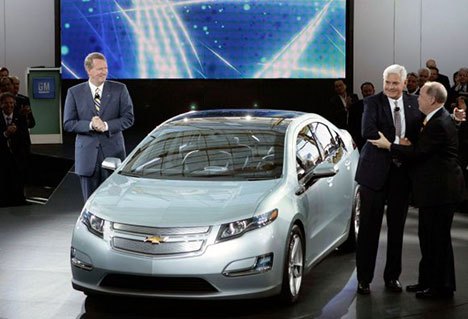
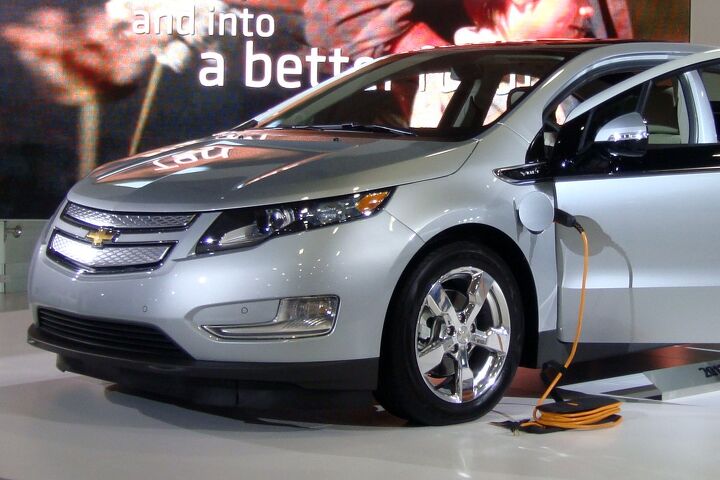
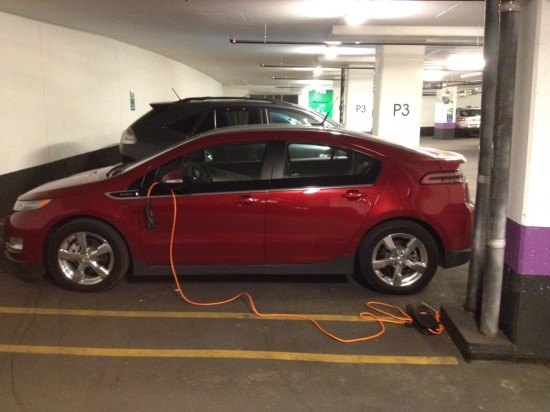

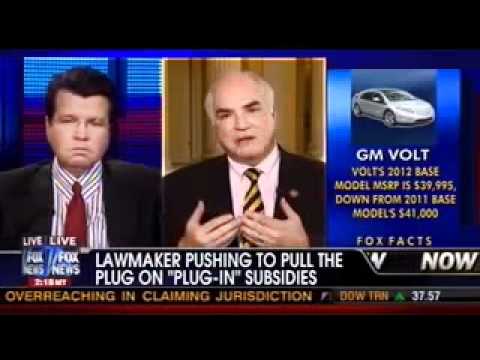
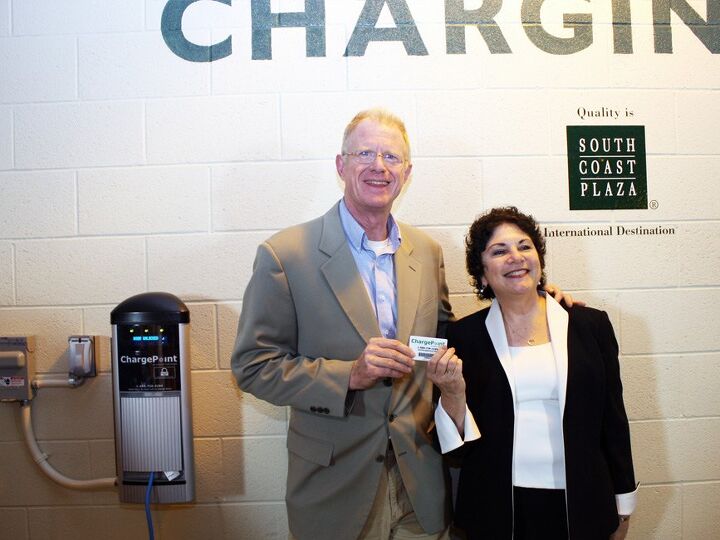

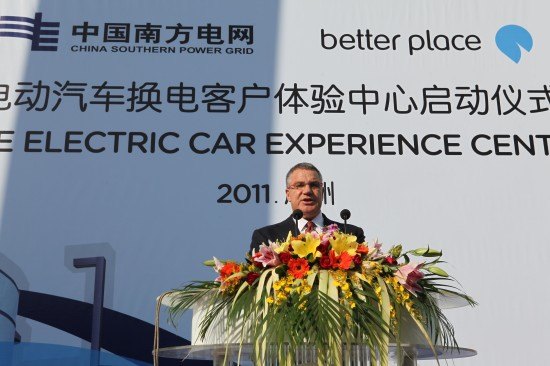













Recent Comments